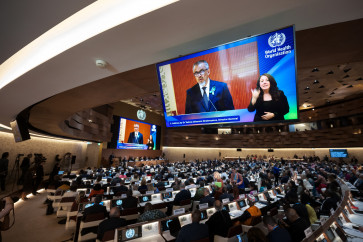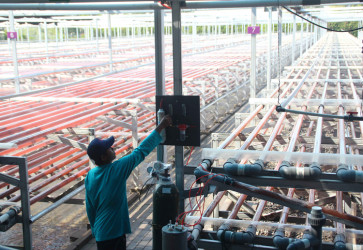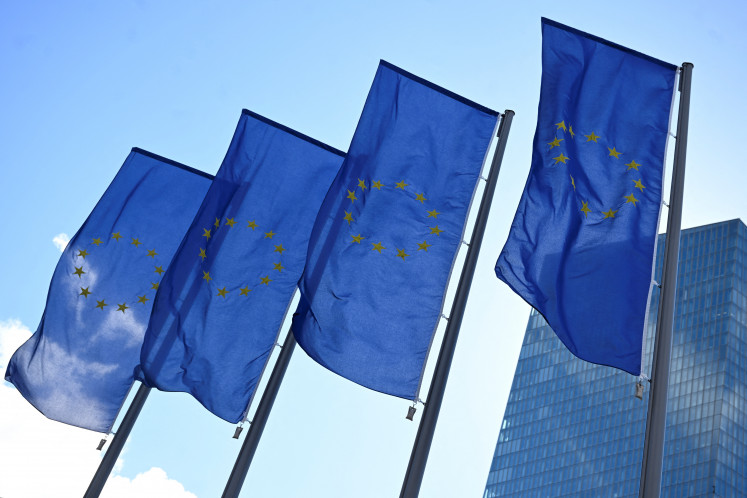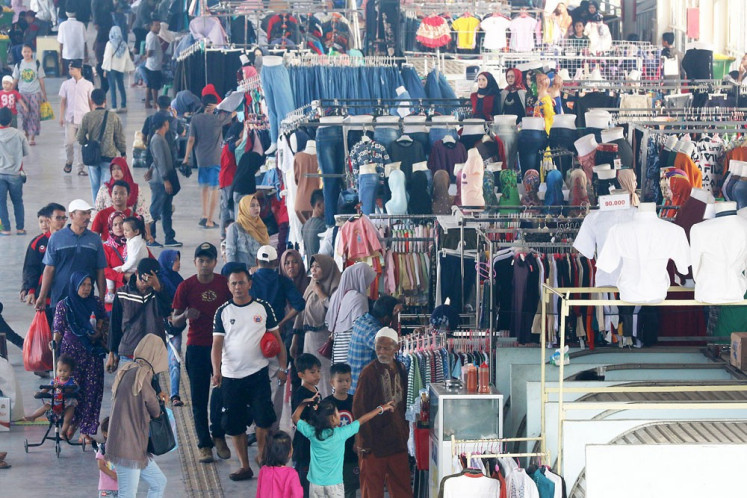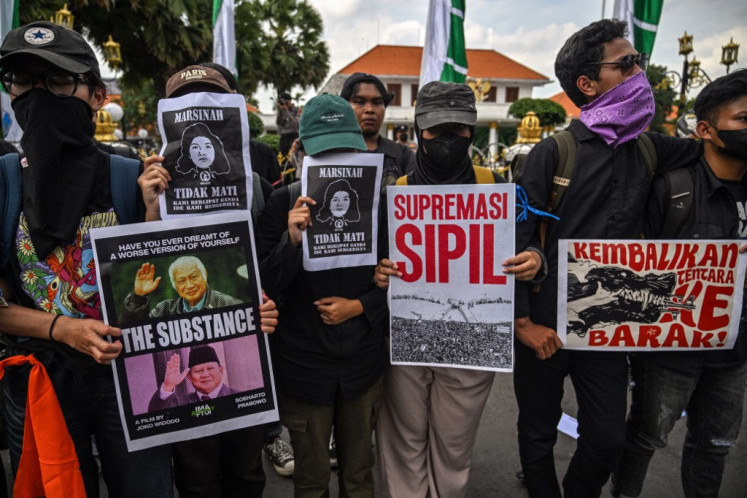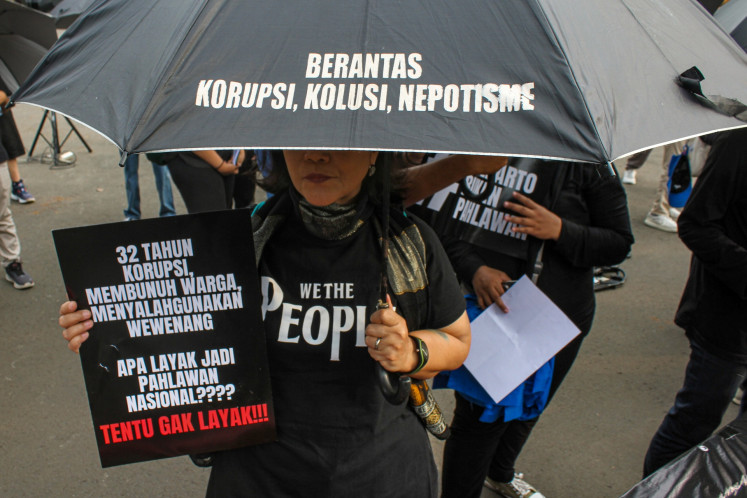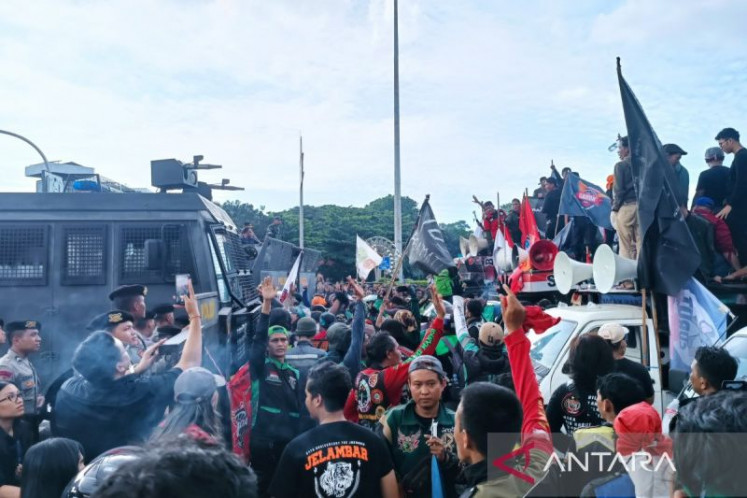Freedom rally to disaster
Freedom is never absolute, and in this particular case, it is limited by the rights of others to live a healthy life.
Change text size
Gift Premium Articles
to Anyone
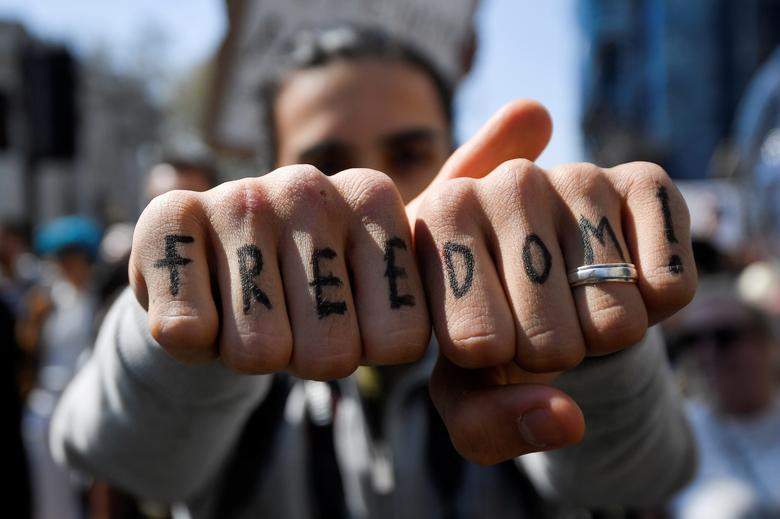 No to lockdown: A demonstrator shows his fists as he takes part in an anti-lockdown “Unite for Freedom” protest amid the spread of the coronavirus, in London, April 24, 2021. (Reuters/Toby Melville)
No to lockdown: A demonstrator shows his fists as he takes part in an anti-lockdown “Unite for Freedom” protest amid the spread of the coronavirus, in London, April 24, 2021. (Reuters/Toby Melville)
M
assive protests staged in over 100 cities around the world last weekend misused the cry for freedom in opposing mass vaccinations and COVID-19 restrictions imposed by their governments to combat the pandemic.
London, Paris, Sydney in Australia and Dublin saw some of the biggest demonstrations as part of Saturday’s Worldwide Rally for Freedom. Here is a growing global movement using freedom as a rallying cry, which, if not stopped early, could unravel all the efforts and strides nations around the world have made in the past year in fighting the pandemic.
The protesters not only reject getting vaccinated, which is within their democratic rights, but they also oppose measures to end the pandemic, such as the wearing of facemasks, maintaining a social distance and now the plan in Britain, France and other countries to introduce mandatory domestic passports to visit public places, including favorite hangouts like pubs, wine bars, cafes and restaurants. Governments are within their rights to introduce these measures to protect their people against infection.
The cry for freedom by antivaxxers is misplaced. Responding to the massive protest in Paris on Saturday, French President Emmanuel Macron rightly asked: “What is your freedom worth if you say to me ‘I don’t want to be vaccinated’, but tomorrow you infect your father, your mother or myself?”
The protesters have every right to express their opinions, but they are demanding something that would trample the freedom of others; that is, the freedom from being infected, which will likely come from unvaccinated people.
Freedom is never absolute and in this particular case, it is limited by the rights of others to live a healthy life. As the famous phrase goes, “Your freedom ends where my nose begins”. The restrictions and the introduction of passports are aimed at promoting, if not, mandating tolerance toward the rights of others.
Closer to home, although we did not see any similar “freedom” rallies in Indonesia on Saturday, the government should take note of a recent survey by the Indonesian Survey Institute (LSI) on people’s attitudes toward the COVID-19 vaccines.
While the majority of the 296,982 respondents support the national vaccination program, the number of antivaxxers and vaccine skeptics are still too significant to dismiss.
The survey finds that 23.5 percent of respondents don’t believe that vaccines would stop the virus, and among respondents who have not been vaccinated, 36.4 percent said they refuse to get vaccinated. Some 26.5 percent don’t believe vaccines are safe and 25.8 percent doubt whether the vaccines are halal.
Another indicator for the prevalence of antivaxxers or vaccine skeptics is the low rate of vaccination among senior citizens of 60 years above (14 percent of the target) and public services workers (57 percent), even though both groups were given first priority — along with health workers — for the national vaccination program, which was rolled out in January.
Indonesia’s vaccination program is nowhere near the herd immunity target of inoculating 208.3 million people, or 75 percent of the population. By Wednesday, 19.1 million people have received their second injection and 45.7 million their first jab. But Indonesia should watch out for possible organized movements by antivaxxers that would also cry merdeka (freedom) in their campaign.

